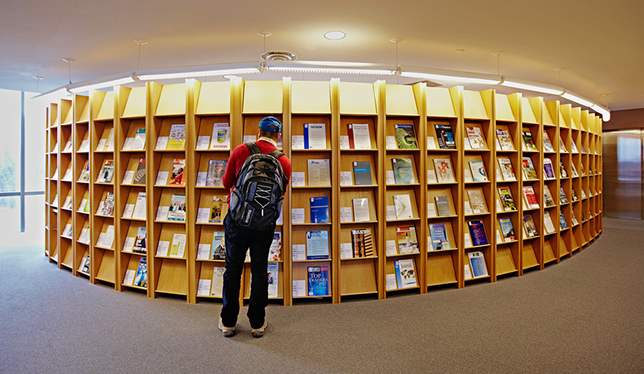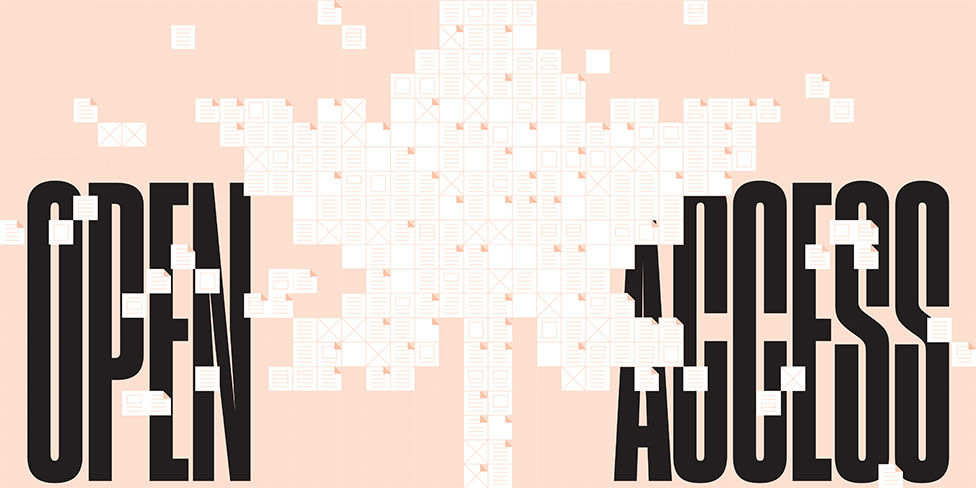Universities must present a united front against rising journal costs, research librarians say
The Canadian Association of Research Libraries proposes that institutions renegotiate unsustainable deals with journal publishers and transition toward open access.

For years, academic libraries have struggled to keep up with the rising costs of journal subscriptions set by a few large, international publishers. The situation “is now getting to a point of crisis,” according to the Canadian Association of Research Libraries, which recently published a briefing paper, with input from the Canadian Research Knowledge Network, to inform university administrators of the challenges and to propose solutions.
The paper notes that scholarly journal prices have risen by five to seven percent per year since 2011. This is part of a larger trend of “excessive price increases” that has been happening over the past three decades, exacerbated by the weakening of the Canadian dollar and tightening university budgets, according to CARL.
Donna Bourne-Tyson, president of CARL and university librarian at Dalhousie University, says information sharing among universities and consortia is crucial to renegotiating deals with journal publishers. “We have a pretty good sense of how each country is faring with large publishers, although we are still working against the constraints of a non-disclosure agreement in some cases,” she said. “Part of the problem is, if we aren’t able to compare apples to apples, we don’t even know what a fair price is.”
Another component of rising journal costs can be traced to the 1990s, when journal publishers began bundling individual journal subscriptions into so-called “big deal” subscription packages that offer unlimited access to many journals at an all-in price. However, these deals have created problems for academic libraries because “they increase in size and cost with every new negotiation period,” and divert funds from other resources, CARL notes. “Libraries become locked-in because publishers will offer them a much smaller number of titles for only slightly less than the entire package, making it very difficult for them to reduce their spending.”
Université de Montréal is among a few Canadian universities to withdraw from “big deal” licenses and has been very active in “unbundling” these packages. In 2012, Université de Montréal libraries launched a project to gather data on which journals researchers were using. “There was a very concentrated usage within the journals,” said Vincent Larivière, who led the research project and holds the Canada Research Chair on the Transformations of Scholarly Communication. “The data allowed the library to show that, for you as a publisher, we only need 30 percent of the journals you’re providing us with.” Meanwhile, “the head of the library wrote a paper to inform people at the university about what they were doing,” Dr. Larivière said. “Most of the faculty were actually behind the library’s move. We had the buy-in of the community.”
In 2017, U de M announced it would cancel a big deal package and subscribe individually to a portion of the journals in the deal. The university renewed access to 160 titles for $236,000 CAD, instead of paying $500,000 USD for all 2,391 titles, while also retaining access to the pre-2017 archives of 404 journals. The journal usage data project led by Dr. Larivière has since been extended to 27 other universities that are members of the CRKN consortium.
While CARL recommends unbundling deals and renegotiating with publishers, it also advocates for a sector shift towards more sustainable models of open-access publishing. “The success depends on everyone viewing this as a shared problem, and not just a library problem,” Ms. Bourne-Tyson said.
To that end, scholars note that institutions must shift away from using journal metrics as a primary way of assessing research quality and impact. “Lots of faculty think that’s the gold standard – they’re only going to publish in certain journals that have these great impact factors,” said Nicole Eva, a librarian at the University of Lethbridge who co-authored a much-read University Affairs opinion piece proposing alternatives to the current academic publishing system. “If you actually look at those journals,” she said, “there’s a few highly cited articles which push up their impact factor, but that doesn’t mean every article in that journal is getting all these citations.”
One way to promote sustainable and ethical open access practices is for the research community to gain more control over the process, notwithstanding what individual researchers contribute in peer review. “If universities took over the running of these journals,” Ms. Eva said, “we could put our money into a break-even kind of model, as opposed to giving it to those big publishers.” But, the key challenge is “how we get from here to there.”
In a similar vein, Dr. Larivière said a significant change in the system is feasible but needs to be incentivized. “We now have the infrastructures that allow us to create the exact same media to disseminate knowledge, to evaluate and edit it,” he said. As it stands, however, “There’s a lot of inertia in the system. Let’s say research councils decide that … papers that are published in not-for-profit venues are more important. Then it would create an incentive for the community to go and create those venues.”
Featured Jobs
- Veterinary Medicine - Faculty Position (Large Animal Internal Medicine) University of Saskatchewan
- Psychology - Assistant Professor (Speech-Language Pathology)University of Victoria
- Canada Excellence Research Chair in Computational Social Science, AI, and Democracy (Associate or Full Professor)McGill University
- Business – Lecturer or Assistant Professor, 2-year term (Strategic Management) McMaster University













Post a comment
University Affairs moderates all comments according to the following guidelines. If approved, comments generally appear within one business day. We may republish particularly insightful remarks in our print edition or elsewhere.
3 Comments
I suspect Anqi Shen gave us the University of Montreal comments in quotation marks to provoke. Similarly presented are “point of crisis,” and “excessive price increases.” One has to shift to publisher-sponsored websites such as The Scholarly Kitchen for some balance. Economists tell us that monopolies are the culprit where excessive price increases are concerned. Their solution is government regulation that restrains and, when necessary, breaks up, monopolies. The consumers themselves are not in this loop. We wring our hands and complain, but government acts.
Even more disconcerting are the comments suggesting lack of recognition of the immense importance of information per se. Perhaps that is why the government is not acting? The standard historical example is relaying the victory of Waterloo back to London. Without information that is carefully presented, preserved, and readily available, the academic enterprise is lost. Yes, lost.
To many scholars “paying $500,000 USD for all 2,391 titles” would seem a great deal. When economies are called for, information should be sacrificed only in the most extreme circumstances. The statement that “Most of the faculty were actually behind the library’s move,” hangs on the word “most.” That rarely touched journal may be trash to many, but gold for the few. And I suspect that many of Canada’s potential Nobelists are among the latter.
Donald Forsdyke (ex-Chairperson, Senate Library Committee, Queen’s University)
It should be noted that CARL only represents the largest university libraries in Canada.
For many smaller libraries like my own, the “big deals” can be a tremendous value for our patrons, providing access (which is actually used) for far more journals than we could ever possibly pay for separately, even if the costs of those journals individually were more reasonable. I don’t think it’s good practice for CARL as an organization to just issue a blanket recommendation for libraries to “unbundle”, if in fact that is what they did. Each library needs to evaluate each specific “big deal” bundle to determine what is the appropriate choice for their patrons and budget.
In regard to universities taking back the publishing process, here are a few of my thoughts:
1) As Tim Vines points out, in introducing any changes to the current system, we must not overlook the importance of paid editorial office staff in the publishing process. https://scholarlykitchen.sspnet.org/2018/03/07/curious-blindness-among-peer-review-initiatives/
2) What you are really talking about is the resurgence of university presses.
3) Lots of highly experienced not for profit publishers and journals already exist (I’m the head of one of them), but our journals still need to measure up to international standards if we want to meet the needs of the research community. As much as I’d love to see credit given by research councils for publishing in not for profit journals, it would still have to be measured among other performance metrics.